Here Comes Kenji
by Kevin Ramsden
It was late on a weekday afternoon, and James was
nearly two-thirds into his second beer of the day. Raising his head from the
reading of his newspaper, he gazed absently around the barely populated bar he
was sat in, properly taking in his surroundings for the first time. With its
outdated furnishings, dark stained wallcoverings and low ceiling, it certainly
was a funky little spot. Gloomy, slightly malodorous, somewhat on the small
side, and buried at basement level in a non-descript building in downtown
Osaka, he was thinking it probably didn’t grab much in the way of passing
trade. Truth be told, he wasn’t really sure why he had decided to venture down
the litter strewn steps and into the semi-darkness of the joint in the first
place. Sure the flickering neon “bar open” light might have had something to do
with it, but something else had drawn him in, and that something seemed to be
keeping him there, and for more than one pint at least. He had actually been looking for another
boozer in the same vicinity that reputedly attracted a good percentage of the
city’s ex-pat community, where he was hoping that he might be able to hook up
with a few people in the know who could help a new kid on the block out. With only a couple of weeks under his belt,
he really needed to start making connections that would lead to something
resembling employment. Although not yet desperate, he knew if he didn’t find
work soon, it would be time to jack it in and head home. And for James that was
simply not an option he wanted to consider. Too many problems back there. But
as that pub was probably not yet open, this subterranean pleasure palace would
have to provide refuge for another hour or two. And what the hell, they had
beer – he would manage.
Continuing his surveillance and purposefully avoiding
eye contact with any of the other early evening patrons, his attention now settled
on the large flat screen TV up on the wall to the right of the bar area,
currently showing a baseball game between the Hanshin Tigers and Yomiuri
Giants. James had no interest in
baseball. Didn’t understand the game, its
rules, or why it was so popular. Judging
by the way the other half dozen or so local punters littering this joint were
behaving, nor did they. Nearly all were
either staring into space, staring at their drinks, or staring, eyes closed,
into their own souls.
All save one.
Perched on a bar stool at the far end of the counter,
and eyeing him intently through a soft drifting of cigarette smoke and dust
motes, was a princess. A real
vision. A little taken aback, James immediately
straightened in his chair and lifting his beer glass slowly to his lips,
returned her look with a steady one of his own. How had he missed her? Had she
been there the whole time?
This was very interesting.
Narrowing his eyes, the better to bring her face into
focus, he struggled for signs of recognition.
She was certainly beautiful, undoubtedly self-assured, and making her
interest in him blatantly obvious. But
he was sure he didn’t know her. If they
had met before, he most definitely would have remembered it.
Next move?
It was hers.
Sliding off the bar stool with a barely a sound, and plucking her wine
glass up off the counter by its stem, she glided across the five meters or so
distance between them like a swan on ice.
James now followed her progress with a little uncertainty. What was happening here? Then she was there. Standing directly in front of him, looking
down with an amused smile playing on her perfectly shaped, gloss red lips.
Parting them slightly, she murmured,
“Americajin?”
“No, English”, he replied cautiously, “You?”
“Very Japanese”, she responded with a laugh, inclining
her head to one side and casually sweeping strands of her immaculately bobbed
hair behind one ear. James was as close
to speechless he had ever been, but managed to gather himself enough to extend
an invitation,
“Would you like to join me?”
With a small nod of acceptance, and another effortlessly
seductive smile, she lowered herself into the chair opposite his, taking a long
sip from her glass before slowly placing it on the table. He took a quick look around the bar to see if
anyone else was bearing witness to this, but nothing had really changed. No one
seemed to be showing any interest in how this little scene was playing out,
except for perhaps the bartender, who, despite fiddling with a beer tap, was
actually casting furtive glances in their direction. He was a pretty cool young
Japanese guy with decent English, and as they were close to the same age,
they’d chatted a bit about this and that while James was being served earlier. James
raised his eyebrows a couple of time to register the universal code for
surprise, but the bartender’s expression came back a little flat, in fact even
a little hostile. Strange.
Still, James had something else to occupy his mind
right now, and she was in a very friendly mood.
The conversation went back and forth easily, and very soon he began to
relax into it. She told him her name,
Reina, and of her love for speaking English and travel. He explained why he had come to Japan, and a
little of his previous life in the UK.
She talked of her hometown, Tottori, and how she had moved to Osaka for
work. He brought up the difficulty he
was having nailing down decent employment, but was confident something great
would turn up in time. Pretty soon, and
much to his surprise, they found themselves exchanging phone numbers and LINE
details and were even chatting over the idea of leaving and moving on to
another more interesting hostelry. All in all, they appeared to be getting
along just swimmingly … until.
Noticing the hint of a tattoo peeking out from under
the short sleeve of the blouse she was wearing, and intrigued by something he
had not seen on any of the young Japanese women he had encountered thus far, he
decided to casually comment on it,
“That’s an interesting bit of artwork on your arm,
Reina, can I see the rest of it?”
Getting surprisingly flustered and even a little
panicked, she tugged on the shirt sleeve in an attempt to hide it, and then
standing up abruptly, and muttering something in Japanese, made a short
apologetic gesture and excused herself, claiming an urgent need to visit the bathroom. James sat back in his chair, clearly astonished
by this sudden change in mood and events, and shaking his head, picked up their
glasses and headed to the bar. Maybe a
fresh round of drinks would get things back on track. Obviously, he had struck
a nerve, but couldn’t for the life of him figure out what the big issue was.
Arriving at the counter, he gave a little wave to
catch the eye of the young bartender, who was nearly finished serving another
customer, and got a curt ‘in a minute’ nod in return. While waiting for his
turn, he swiveled from side to side to check if Reina was returning from the
toilet, and to clock the rest of the clientele.
This time, far from ignoring his presence, several sets of eyes were
firmly fixed on him, and one or two faces even bore expressions of outright
animosity. What the …? James did not like the feel of this one
bit. At that moment, the bartender
rocked up, and before James could get a word out, leaned toward him and spoke
low and hard,
“I think you need to leave, man”
Shocked and now more than a little uneasy, James
countered,
“What’re you talking about, mate. I haven’t done
anything”
The bartender shook his head,
“That girl you’re with. She’s not yours, she’s not for you”
James let out a nervous laugh,
“I’m not with her, mate. We’ve only just met. What’s the big problem?”
The bartender leaned even closer and hissed,
“Listen! I’m
trying to do you a favor. Everyone in here knows her. She’s not what you think.”
And now in a raised voice,
“Seriously, you just need to go!!”
At that moment, two things happened almost at once. The
door to the bar flew open, ricocheting off the faux brick wall with a
resounding bang and a shattering of glass. And Reina, who had by now
reappeared, let out a shriek of near terror and stood shaking with both hands
clamped to her mouth. Seconds later, a
very large, very hard looking Japanese guy with a less than genial look about
him sauntered through the opening. Head swiveling from side to side, he finally
settled his gaze on James. Fixing him with a stare exuding pure menace.
The bartender stepped back and through gritted teeth
exclaimed,
“Majikayo, Kenji daze” – “Oh shit, here comes Kenji”.
…
James cautiously opened one sleep-encrusted eye, and
winced as the harsh morning sunlight blasted the side of his face that wasn’t
glued to the pillow. Too far from the window and, therefore, too far from being
able to close the curtains, he slowly dragged the thin bed sheet covering him
up and over his head to at least partially block the fearsome rays attacking
his body. Reluctant to do anything that might increase the industrial scale pounding
currently ongoing inside his skull, he lay motionless and attempted to organize
his thoughts. Some things became immediately clear: he was not in the room he
had been sharing with the guitar playing Italian traveler at the hostel in
Shinsaibashi; he was still fully-dressed and in the same clothes as, he
presumed, yesterday; and apart from the splitting headache and glass paper raw
throat, his upper-right arm hurt like a bastard. Jesus Christ! What the hell had he done? And where the f**k
was he?
Taking several deep and painful breaths, he took the
plunge and cast the flimsy sheet off. Swinging his legs out and to one side, he
managed to raise himself into a sitting position, and from there, take stock of
his situation. Looking around, he could immediately see he was in some sort of
low-end hotel room. The place stunk of stale cigarettes, with tired looking
furnishings and fittings, and a carpet worn extra thin by heaven knew what
kinds of nefarious activity over the years. With enormous effort, he forced
himself to stand, and on tremulous legs, shuffled warily the few feet to the
combined unit toilet and shower cubicle. Once inside, he lowered himself onto
the toilet seat, and half turned to check his reflection in the mirror on the
wall. “Oh, my god” he whimpered to himself, “What did you do, James?” For the face that stared back at him was not
at all a pretty sight. Not the face of an average looking, 24-year-old at all.
He looked like, as his mum would say, death warmed up. Softly shaking his head,
his eyes started to brim with tears, which then slithered ungraciously down his
cheeks. After a few moments of deserved self-pity, he moved to brush away the
moisture from his cheeks and set to checking what else was amiss. Carefully
running his hands over his upper body, he was relieved to find no obvious
injuries, and just the usual aches and soreness that followed an extremely mad
night out. But there was still that persistent burning sensation in his right
arm.
Moving at a centenarian’s pace, he took an inordinate
amount of time to remove first his jacket, and then his shirt, letting both
fall to the floor, before turning his attention to his upper arm, and the oversized
plaster that now sat there, harboring a secret under its plastic surface. Now,
he couldn’t remember that being there yesterday. Taking measurable care, he
started to peel back the lower edge of the thing, cursing under his breath at
both the pain of the process, and the reality of what was being slowly
revealed. When the operation was complete and the bloody gauze discarded into
the washbasin, James stared open-mouthed at what lay beneath. A tattoo. A
freakin’ tattoo! That had DEFINITELY not been there yesterday! Chinese
characters he couldn’t read and a number:
剣児 12
Now this was starting to get more than just a little
bit scary.
Faced with this new, very much unwanted, development,
he was struggling to get a grip. “Think,
think, think, James” he urged himself, while frantically, searching through his
pockets; jeans, shirt and jacket for possessions, clues, anything. Nothing. Right.
Maybe he had been mugged? Shuffling with
a little more urgency this time, he moved back into the sleeping area to
conduct a further search. Shit! No
rucksack. OK. More than maybe mugged. Mugged
by a tattoo artist? This was crazy. Seconds away from simply exploding in panic
and fleeing somewhere, anywhere at all, he happened to glance down. And there
was his phone. On the small dressing table
next to the bed. Just the phone and nothing else. The digital clock next to it
read 11.49. Finally, something familiar. A lifeline out of this insanity. Then
the phone buzzed. James pounced on it, half picking, half juggling it up.
Scanning the screen quickly, he tapped on an incoming LINE message that read:
Come to the bar NOW. Right
NOW. ONLY YOU!! (serious face)
…
James stood on the top step looking down at the door
to the bar. He was finding it hard to believe he had first entered this place
just short of 24 hours earlier. The fact that he had been summoned back here
now, and with absolutely no memory of leaving, or indeed what had transpired
since he had first entered, was alarming to say the least. But he knew he had
to walk down those stairs and confront whatever was waiting for him within. He
simply had no choice in the matter.
Pushing open the old wooden entrance door, with its
peeling paint work and square of cardboard replacement for a glass panel, he
stepped nervously across the threshold. As soon as the first waft of a familiar
musty nicotine and beer infused odor hit his nostrils, a flood of memories
rushed screaming into his brain. That smell had been the prelude to this
nightmare. After scouring the place for signs of life for a few moments, he
finally settled on the three figures clustered around the end of the counter
furthest from the door. Unless they were hiding, there didn’t appear to be
anyone else around. Walking slowly towards them, he shot wary glances from left
to right, still not sure of what he was getting himself into. As he neared the
trio at the bar, and they came more clearly into focus, recognition started to
bite like a mangy dog. The beautiful girl. The cocky bartender. And an old guy
he had no recollection of at all. Both the girl and the older man averted their
eyes when he drew close enough to speak. Neither, seemingly, having the courage
to engage with him. It was the bartender who spoke first,
“You came then” he sneered, stating the obvious.
“Didn’t really have much choice, did I?” James
responded, looking the young guy up and down.
“That’s true” the bartender said, “No choice at all.”
“So, would somebody like to tell me what the f**k is
going on” James stated flatly, and then more angrily “Because somebody has
really taken the piss here, and I want to know who it was, and why. Understand?”
“Fair enough” the girl spoke for the first time, “Do
you want a drink?”
“Do I want a drink?” James spluttered, moving forward
to confront her directly. Then shouting in her face “No, I don’t want a bloody
drink, darlin’. I want all my stuff and a bleedin’ explanation. That’s what I
want.” Slamming a fist down heavily on the top of the bar, rattling some empty
glasses and an ashtray. The girl simply shrugged in response and nodded to her
left, where James’s rucksack and holdall containing all his other belongings
sat on the manky carpet.
“There’s your stuff” she said “Number 5 will fill you
in on the rest.”
And with that she brushed past him and wandered off
to a table on the other side of the room.
Turning his attention back to the bartender, he
pointed an accusing finger at the young guy’s chest,
“Are you number 5 then, mate?” he said. “Are you the
dickhead that’s caused me all this grief?”
“My name’s Yuya” the young Japanese hollered over
James’s shoulder at the girl, “Not number f*****g 5.”
“Whatever” the girl mumbled as she sat casually
swiping a thumb across the screen of her phone.
Exasperated, James’s voice took on a more pleading
tone,
“Look, I really don’t care who is number whatever,
OK. But can somebody please explain all this to me. I’m going out of my mind,
here.” Then rolling up his sleeve to reveal the tattoo on his right arm, “And what
does this mean? Who did this to me?”
Yuya smirked in reply, and pulling up the right short
sleeve of his own tee shirt, presented his arm to James. There, almost identical
in size, was the exact same tattoo so recently applied to James, but bearing a
different number to the right of it:
剣児 5
“Number 5” whispered James. “Then that makes me
number 12, right?”
Yuya nodded. “Sorry, man, but that’s pretty much it.”
Then pointing past him to Reina, he said, “and meet number 8” and then jerking
a thumb in the direction of the yet-to-speak old man to his left, “and this is
number 2.”
“What does the kanji mean?” exclaimed James, “What’s
that about?”
“That kanji is the name of the guy who owns this
place, dude.” Yuya said softly with a slow shake of his head, “Those kanji read
Kenji. But he doesn’t just own this bar – he owns you too, now. He owns us all,
man.”
“What the f**k do you mean, he OWNS me!” James
exploded. “How can he OWN me!”
So Yuya explained.
Kenji was a psychopath. Pure and simple. A very rich,
very well-connected psychopath. And many a poor wretch who made the mistake of
entering his bar, also unknowingly entered his sick, depraved world. He, Yuya,
for example, had simply answered an ad for bartenders, where the hourly rate
was way above the norm. As a struggling student, he desperately needed the
money for tuition, and to help feed his new and building drug habit. Somehow,
Kenji had found out all about his situation, and intervened. Not to help him, but
to reinforce his addiction. To make him totally and utterly dependent to the
point he had nowhere or no one else to turn to. He built a portfolio of Yuya’s
life in minute detail, tracking down his family members and friends, digging
into every aspect of his young life, probing for every weakness. And Yuya had
many. He quickly amassed a mountain of information, including video, photos and
signed confessions taken under extreme circumstances. And to complete the
whole, mad and irrational project, the demented, sick bastard had branded him,
like a farm animal, a living, breathing possession. He had broken him, and then
he had owned him. But he wasn’t alone, of course.
Reina, number 8, was a runaway. Desperate to escape
physical and sexual abuse at the hands of her step-father, she had fled to
Osaka from Tottori. Where she had swum directly into Kenji’s net. She didn’t
stand a chance. Kenji had spent a great deal of time and money grooming the
young, impressionable and broken girl, until she felt she could no longer
survive without him. As for the old guy, number two, he owned the rundown
business hotel where James had woken up that morning. A solitary man with few
friends and no family, he had been easy prey for Kenji and his associates, and
after he had opened up to his new friend about his awful predilections
following a heavy drinking session in the bar, and received an empathetic ear,
his hard drive full of child pornography he thought he had made a well-kept
secret, was no longer such. Now his hotel was home to all of Kenji’s possessions.
Somewhere he could coral them. Keep a close eye on them. Under complete
surveillance. No one paid rent, and all their needs were catered for. But no
one could leave. Not unless Kenji decided otherwise. If they dared to attempt
it, the least of their worries would be their secrets being exposed to the
world. If Kenji was in the wrong mood – their disappearance may be made
permanent.
James was speechless. He realized now he was now
number 12 in the collection, and it was abundantly clear he was in a very tight
spot. But wait a minute. What could Kenji possibly have on him? He’d only been
in town for two weeks. He didn’t really know anyone and had done nothing
remotely illegal. He would just simply blow this joint and take off. Just a
shit tattoo as a bad reminder. He threw a pitying look Yuya’s way and wagging a
no-no finger, stooped down to pick up his belongings. The bartender let out an
audible sigh,
“Not that easy, dude” he said.
Standing with a bag in each hand, James laughed
nervously,
“What are you talkin’ about, mate” he said, “I’m out
of here. This Kenji’s got absolutely nothing on me. You losers may have to put
up with this crazy shit, but not me. And I’ll tell you something else. Next
stop is the cop shop to fill them in on this freak show going on ‘ere.”
In reply, Yuya reached behind him for the i-pad that
was resting on the counter. Swiping the screen to bring up a file, he swung it
round so that James could see,
“You don’t remember anything about last night, do
you, dude. Kenji coming crashing in here. Number 3 and number 7 holding you
down. Kenji pouring that shit into you? No, you don’t remember a thing.”
And then pushing the pad forward under James’s nose,
“This jog your memory?”
James look down at the screen and the terrible images
that had appeared on it, and immediately started to gag. WTF? How on earth had
they managed to get him to do that. Who were these people with him? It was
unbelievable. Shaking his head in denial, he felt his body start to heave and
began sobbing uncontrollably. Yuya took him by the shoulders, guided him to a
chair and sat him down. Reina moved over to sit next to him, placing a hand on
his arm and slowly bringing her head to rest on his shoulder. James succumbed
to the raw emotions sweeping his body and slumped down in abject defeat.
“Oh yeah” added Yuya, “he’s got your passport, too,
man. You ain’t going nowhere”
…
James left his room at the hotel and trudged down the
stairs to the tiny lobby area. Number 2 was sat behind the reception desk as
usual, staring out the grimy window of the front entrance to the narrow street
beyond. James didn’t even bother to acknowledge the faint wave the old pervert
aimed in his direction, and yanking open the door stepped outside. As he made
his way through the now familiar labyrinth of alleyways that crisscrossed the
district, with its hole-in-the-wall ramen stands, abandoned adult video shops
and brightly-lit convenience stores, his mind was on the evening ahead. Another
night behind the bar at Kenji’s. Another night of serving the lowest of the
low, both the friends and property of a madman. Reaching the top of the steps
to the bar at street level in just under 10 minutes, he paused before
descending. Strange noises were emanating from the place. None of which he had
heard before. The sounds of laughter, singing and the unmistakable strumming of
a slightly out-of-tune guitar. Hopping
down the steps two at a time, he thrust open the door to the bar and into a
most unusual scene. Sat at the very same table he himself had occupied that
fateful night not so long ago, were several of the “numbers”, including Reina
8, and a long-haired, bearded young troubadour who was joyfully murdering an Ed
Sheeran song, much to the delight of his little throng of admirers. James
recognized him right away. Matteo. The fun-loving Italian traveler, his
roommate from the hostel when he’d first arrived.
Noticing his audience’s attention had been diverted,
Matteo immediately stopped playing and turned to see what or who had stolen his
thunder. On seeing James, he quickly lay the guitar to rest on the chair next
to him and beaming, jumped to his feet to greet his friend,
“James” he playfully admonished in his heavily
accented English, “Where you been, brother. I am very worried about you. You
just disappear.”
James looked forlorn.
“How did you find me, Matteo?” he asked quietly. “How
did you find this place?”
“What? Don’t be silly, Jamey” Matteo laughed, “You
send me message, you ask me to come. Look”
And then, after a little digging in the front pockets
of his jeans, Matteo retrieved a scrap of paper with directions to the bar on
it and a short fateful script:
Hey Matteo, come and join
the club! James
“No, no, no” James started jabbering at him, “No, I
didn’t send this, mate. You gotta go. You gotta go now. You have no idea what
you’ve walked into”
“What you talking about, Jamey” Matteo spluttered, “I
just get here. What is wrong with you?”
“JUST GET OUT!” screamed James in the face of the by
now hopelessly bewildered Italian, pushing him hard in the chest.
Then, just as a visibly upset Matteo was about to
grab his stuff and take off, the sound of the main door to the bar being
forcefully opened brought the room to an eerie silence.
“Too late, man” came the voice of number 5 from
behind the bar,
“Here comes Kenji”
**************
For more fiction by Kevin, please see this story.






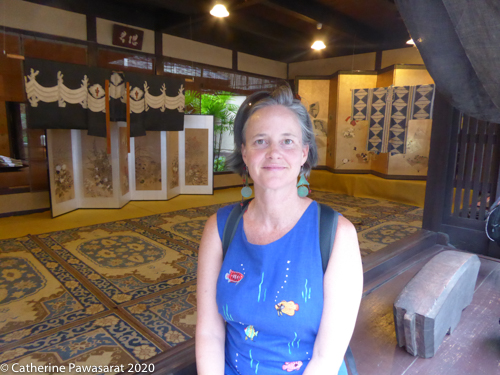
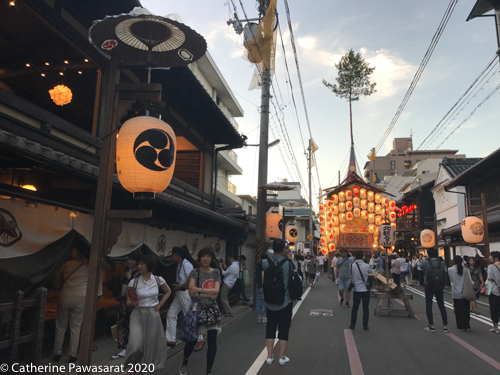
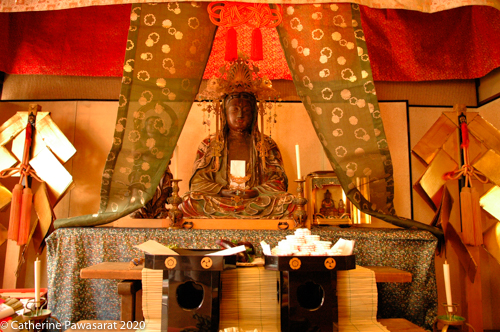
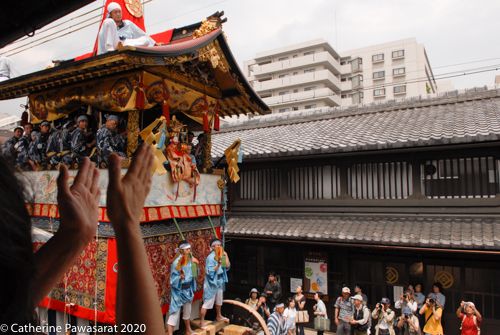
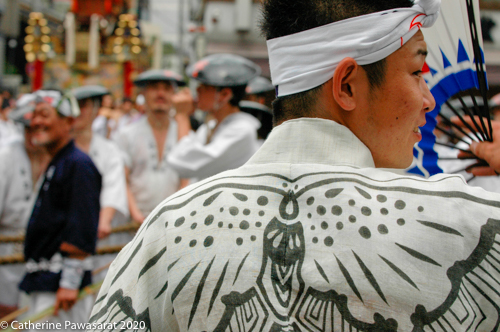
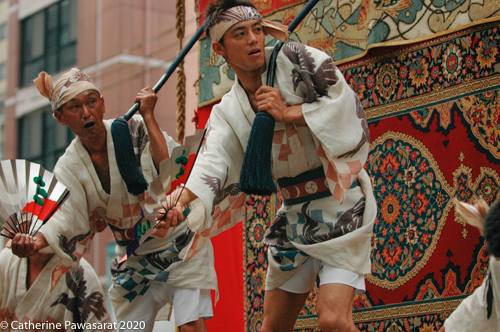





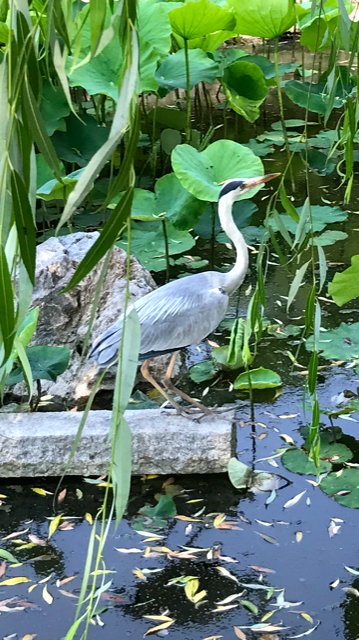


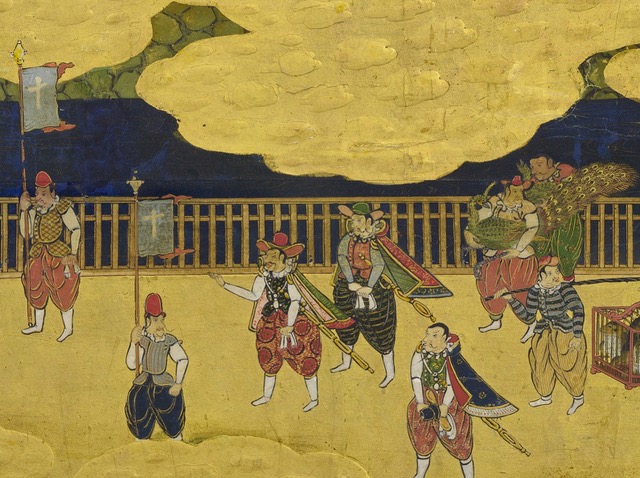

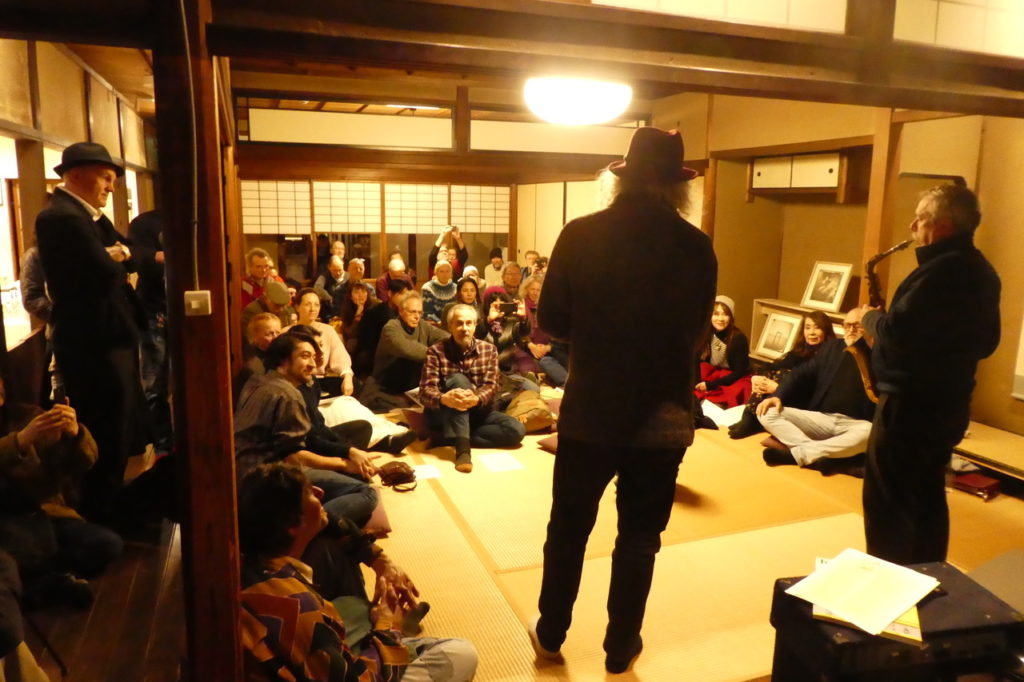


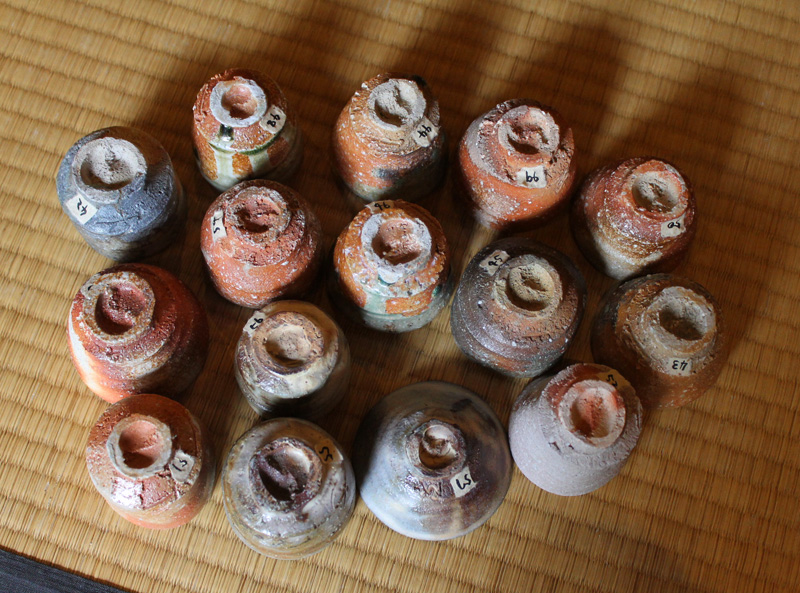







Recent Comments